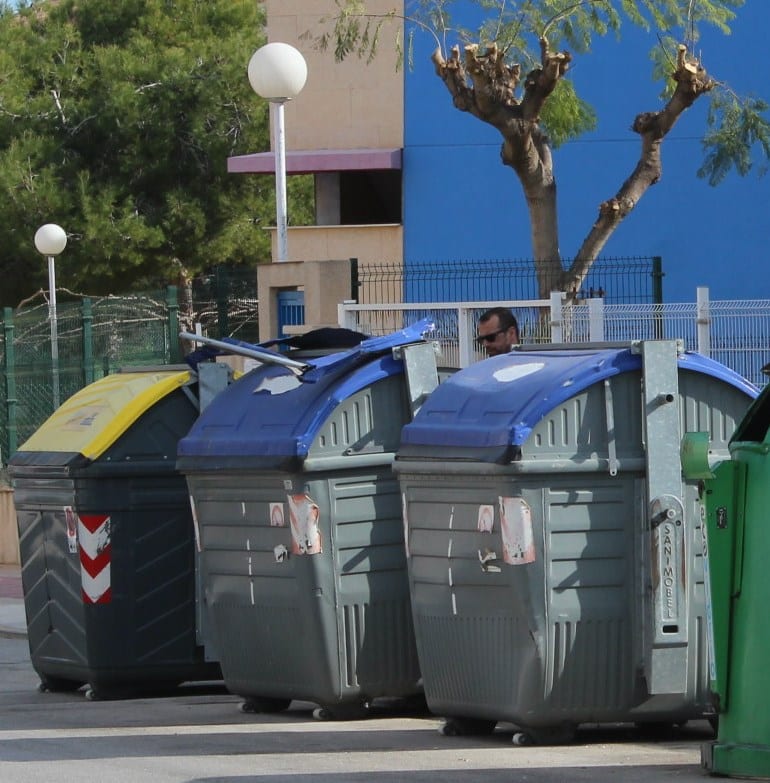The Department of Street Cleaning and Urban Solid Waste has drawn up the Local Waste Management Plan, which, as well as outlining the current deficiencies, provides a roadmap to the improvement and modernisation of the service. Th result will see an investment of 20 million euros over the next six years.
According to the councillor responsible, Dámaso Aparicio, as well as improving the efficiency of street collections, more effort needs to be put into the recycling aspect, as well regular awareness campaigns to put an end to many fallacious beliefs. “Improving collection at source also has environmental and economic advantages, and it is also mandatory by law,” he said.
“If it is not recycled, we all pay more and the City Council does not receive the income associated with it’s recycled waste,” he explains.
In addition to improving efficiency, there are plans for each urban area, with more than 10,000 inhabitants, to have it’s own individual waste plan, a requirement of Spanish law. The law also establishes that “municipalities with more than 50,000 inhabitants must have door-to-door collections, together with a user identification system that allows economic and fiscal policies to be applied”, although at the moment few municipalities comply.
The Orihuela project will introduce a pilot test of a door-to-door collection service in homes, as well as a payment system so that residents will pay based on the waste that they generate. In addition to adapting to the current regulatory framework, the plan also aims to modernise the service which will include the installation of sensors in waste containers so that the manager knows their status and collections can be arranged accordingly.
The new arrangements will also introduce a video surveillance system at dumping black spots and waste tips, with motion detection recording systems, registration of license plates and notification to the Local Police, as well as a pilot test of selective collection on the coast through a card identification scheme.
Another consideration is to set up an area to drop off bulk items and equipment in the future eco-parks, of which there will be two (one in the city and the other on the coast) and an area that allows the re-use of furniture and the exchange between residents.
In terms of resources, the plan establishes the need to increase the number of waste containers by 20%, currently around 4,000, in addition to renewing a further 20% due to their poor condition, as well as an annual replacement system.
Not surprisingly, the document itself recognises the fact that the majority of the population agrees on the need to improve the service, the number of containers and their cleaning and maintenance.
There will also be the introduction of a fifth container (coloured brown), which is used to recycle organic waste, as well as more machinery, vehicles and personnel.
All this, concludes Aparicio, responds to the demand of our residents and balances the economic importance associated with the management of municipal waste.
Reports state that the Mayor, Emilio Bascuñana, and the Councillor, Dámaso Aparicio, have already presented the Local Waste Management Plan to a number of municipal groups, the document that, based on an assessment of the situation, establishes the necessary actions.
The government’s coalition partner, Ciudadanos, did not attend the meeting, so now, the PP seeks agreement from the opposition parties to carry out this project that must first go through the plenary before its approval.
The Partido Popular do not want it delayed or held up, as is the case with the waste collection and street cleaning service, which is based on a blueprint from 14 years ago, and which opens the debate on whether its management, now direct, should pass to joint management, both government run and private enterprise.





